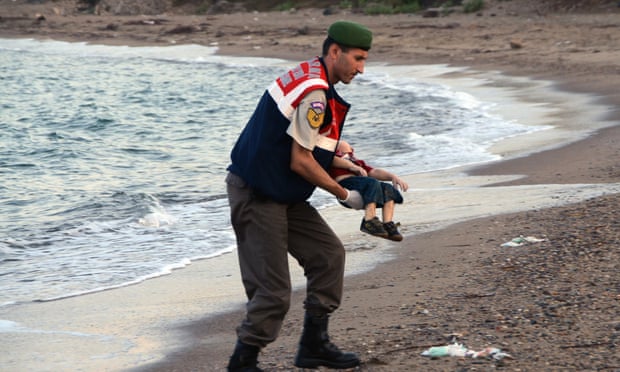The ultimate goal, as Europe deals with the migration crisis
that is suddenly sweeping the continent, must be to restore peace in Syria and
help make it a country to which people feel safe enough to return.
Tragically, this country, which was so recently functional,
civilised and well developed – albeit one ruled by an hereditary dictator – has
disintegrated. Both ISIL and President Bashar Al-Assad are unleashing
unspeakable terrors upon the people, four million of whom have fled the country
and a further 10million are displaced within its borders.
And, as these refugees flee, into Jordan, Lebanon, Turkey
and beyond, they join other refugees fleeing other places of conflict in Libya,
Eritrea and South Sudan, as well as economic migrants; a massive movement of people mostly desperate for, as Stella
Creasy said in the emergency debate yesterday, ‘the chance to stay alive’.
This is the situation that David Cameron and Europe
face. While Angela Merkel and others have started welcoming refugees for
humanitarian and other more prosaic reasons, it’s hard not to conclude that the
prime minister’s response has been directed by a contradictory mess of
politics.
It can only be a good thing that Cameron’s government wants
to take in 20,000 vulnerable people who have fled to refugee camps from Syria
by 2020, but at 4,000 a year this is a pitifully small number, especially
compared with Germany which is contemplating 800,000 migrants this year and a
further 500,000 in subsequent years. Germany welcomed 18,000 refugees last
weekend alone.
There seems little doubt that the prime minister and his
government were caught flat-footed by the outpouring of anger and grief
triggered by the decision of several newspapers – including my own – to publish
the photograph of the dead Aylan Kurdi on their front pages; yet, hopes that
the 20,000 pledge would be enough to see off his critics already seem
misplaced. And Cameron’s stance does nothing to deal with the situation facing
Europe now.
In many ways, the prime minister is in an unenviable
position. On the one hand, he doesn’t want to be seen to be doing anything
which might smack of co-operation with our European partners in case it
provides any ammunition for those in his own party who want to leave the
European Union - many of whom are also prominent campaigners against high immigration. On the other, Mr Cameron will be only too well aware that his
EU partners are urging Britain to do more to alleviate the refugee disaster
within Europe’s borders and he must fear that his determination to exclude this
country from any shared willingness to offer a safe harbour to refugees
threatens the progress of any future EU negotiations.
But, as the circumstances change, our response must change.
Cameron is right when he says a solution cannot simply be achieved by taking in
more refugees. And he is clearly aware that any solution has to be
multi-faceted.
The prime minister may feel sore about his failure in the
last parliament to command support for attacking Assad after he used chemical
weapons in the conflict in Syria. But, without parliamentary approval, we now
learn that action has been taken in Syria anyway, with a fatal drone strike on British terrorists there. International co-operation is essential and enlarged military
action of one sort or another – against both Assad and ISIL – now seems increasingly
inevitable.
But simultaneously, Cameron might be better to try and rise
above the messy political complexities, take a lead in parliament, and respond
to the imperative need for human kindness closer to home now.
Those who argue against allowing more refugees into the
country, have a favourite question to which they often return, 'well, how many
should we take?’ It is an impossible question to answer. The British government
has done much to support refugees in the Middle East, spending more there than
any other European country. But the crisis has developed and moved. Ignoring
the situation in Europe is not part of a solution.
Britain cannot keep on claiming to be an honourable place of
refuge on account of the Huguenots who flocked here in the 16th and 17th centuries . It cannot even do that on account of the Kenyan Asians who arrived
here from the late 1960s. As Robert Peston has noted, Germany’s motivation to
taking so many migrants is not wholly humanitarian; their population is ageing
and falling, a boost in younger workers is just what Germany needs.
Similarly, we need to take heart from the very significant
benefits this country has accrued from our own, historic refugee influxes and recognise that
being properly generous, now, could bring its own reward in the future. But ultimately, the demand to act, to work with our European counterparts to tackle this wretched situation on our doorstep, is a simple one; the humanitarian need is here and now.


No comments:
Post a Comment
The comments expressed do not necessarily represent the views of the blog.